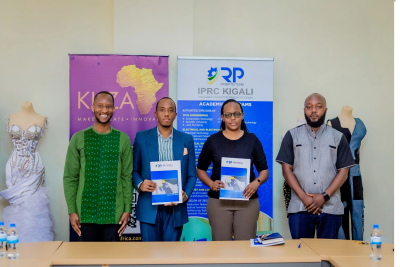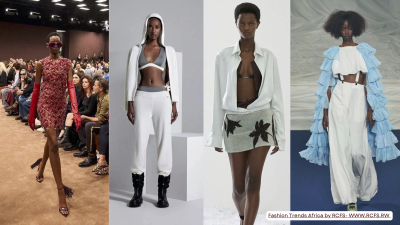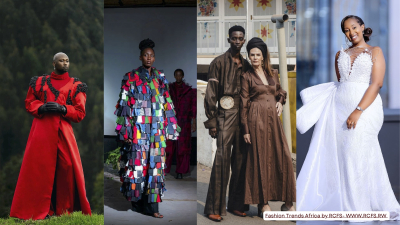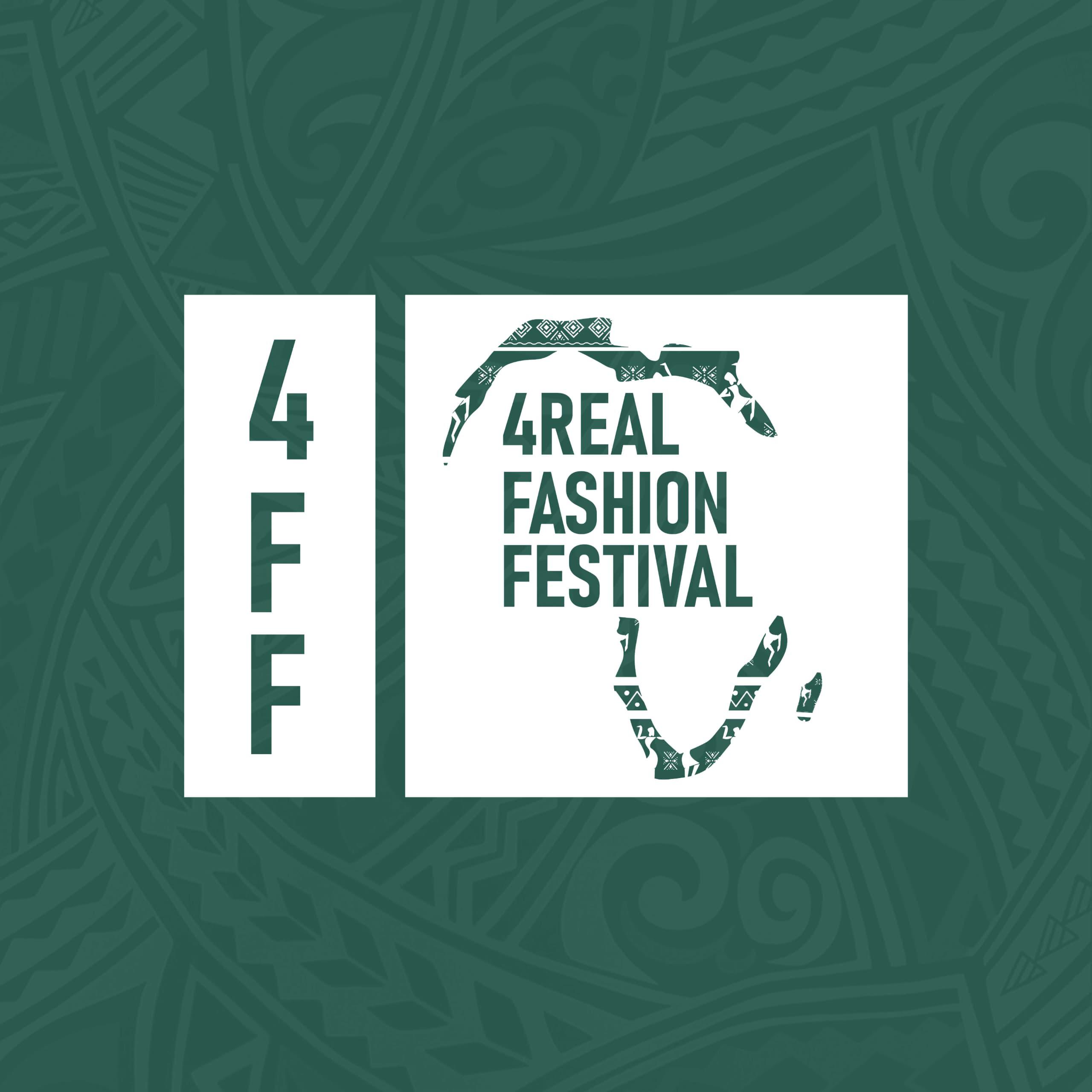 Collection made by the Kenyan raw: From Waste to Body with Unique Designs: Kenyan raw Fashion Brand
Collection made by the Kenyan raw: From Waste to Body with Unique Designs: Kenyan raw Fashion Brand
From Waste to Body with Unique Designs: Kenyan raw Fashion Brand
In the bustling heart of Nairobi, as the city was preparing for the prestigious Africa Fashion and Arts Awards (AFAA2024), we had the privilege of sitting down with Morgan Azedy, the creative force behind Kenyan raw. As the founder and creative designer of this innovative fashion brand, Azedy is making waves in the Kenyan fashion scene with his unique approach to sustainable and avant-garde design.
Morgan Azedy's journey into the world of fashion began in 2020 at the Ramongi Institute in Kisumu. It was here that he honed his skills in textile, fashion, and design, laying the foundation for what would become a revolutionary approach to clothing creation in Kenya.
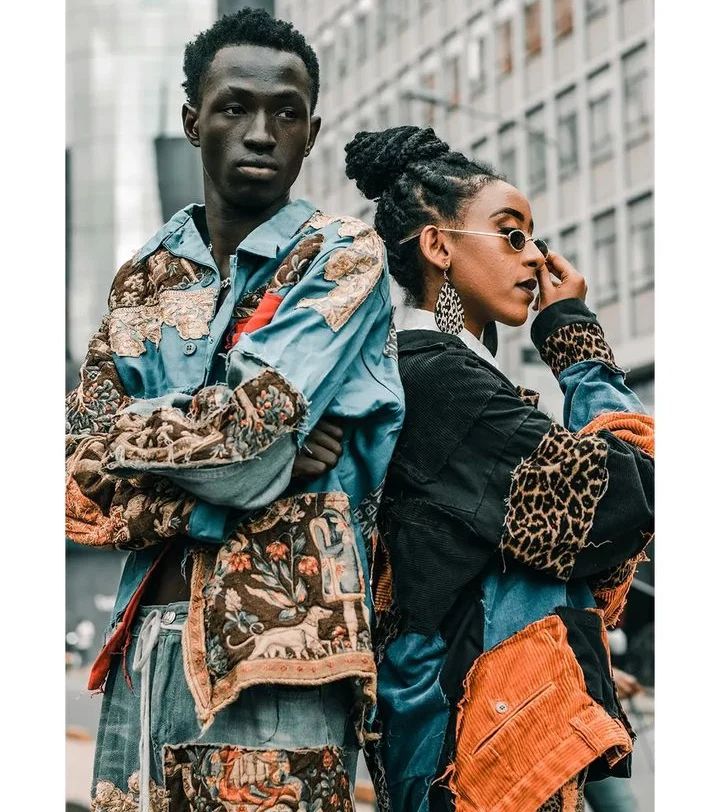 [PHOTO: Collection made by the Kenyan raw]
[PHOTO: Collection made by the Kenyan raw]
"I started to do fashion 4 years ago," Azedy recalls, his eyes lighting up as he speaks about his craft. "And this is where I learned textile, fashion, and design. I chose to create more street-look outfits because many fashion designers are doing the same things. They all look alike."
This desire to break away from the conventional is at the heart of Kenyan raw's ethos. In a market saturated with similar styles and approaches, Azedy saw an opportunity to carve out a niche that would not only set him apart but also address pressing environmental concerns.
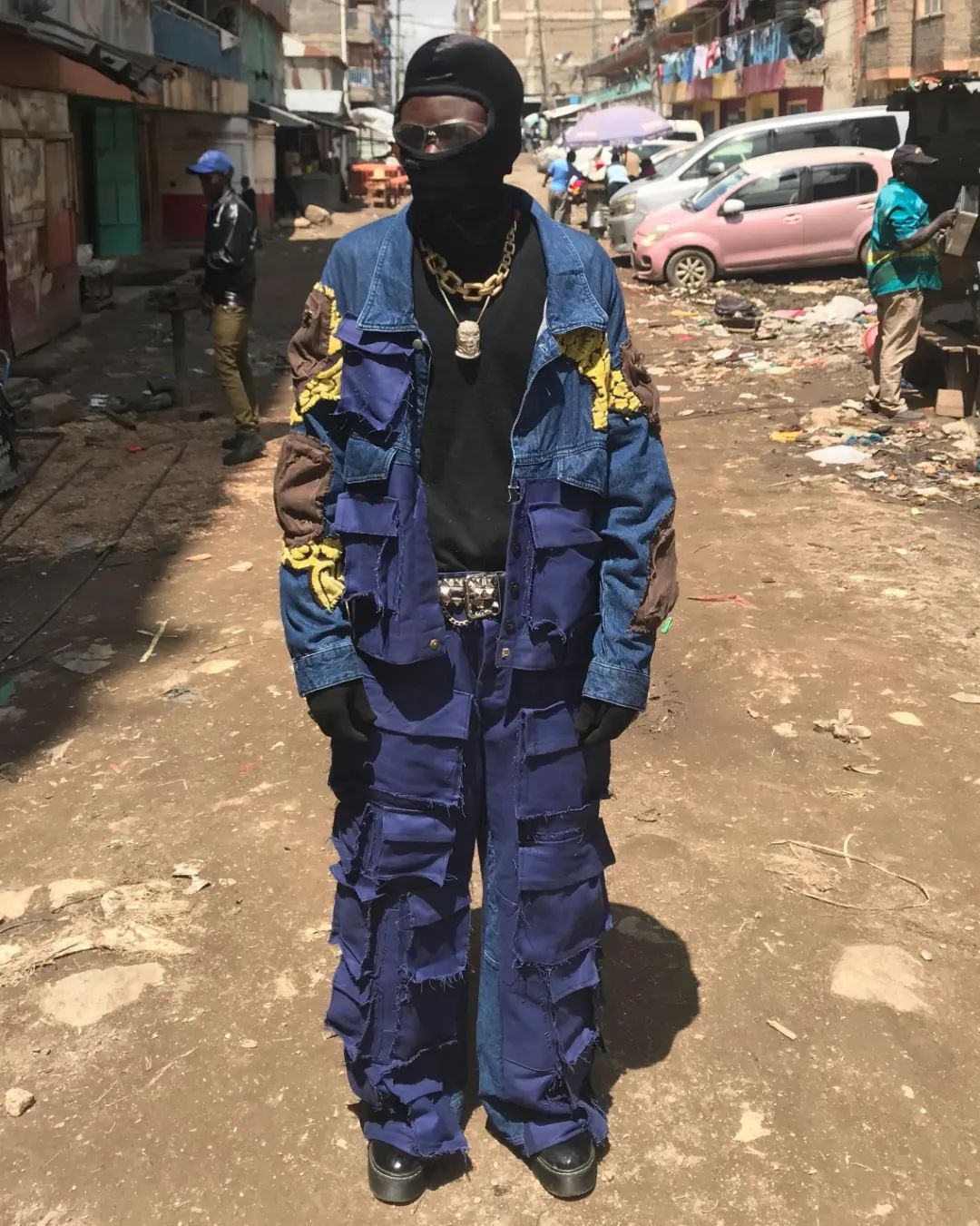 [PHOTO: Collection made by the Kenyan raw]
[PHOTO: Collection made by the Kenyan raw]
What sets Kenyan raw apart in the competitive world of fashion design is Azedy's unique blend of street style and high fashion. This fusion allows him to bring what he calls "crazy ideas" to life, resulting in finished looks that are both unique and captivating.
"I am unique and I do create a combined street look with high fashion that allows me to bring crazy ideas that make the finishing looks more unique and enjoyable even to look at," Azedy explains with pride. "I use all kinds of fabrics like cotton, polyester, wool, and many others."
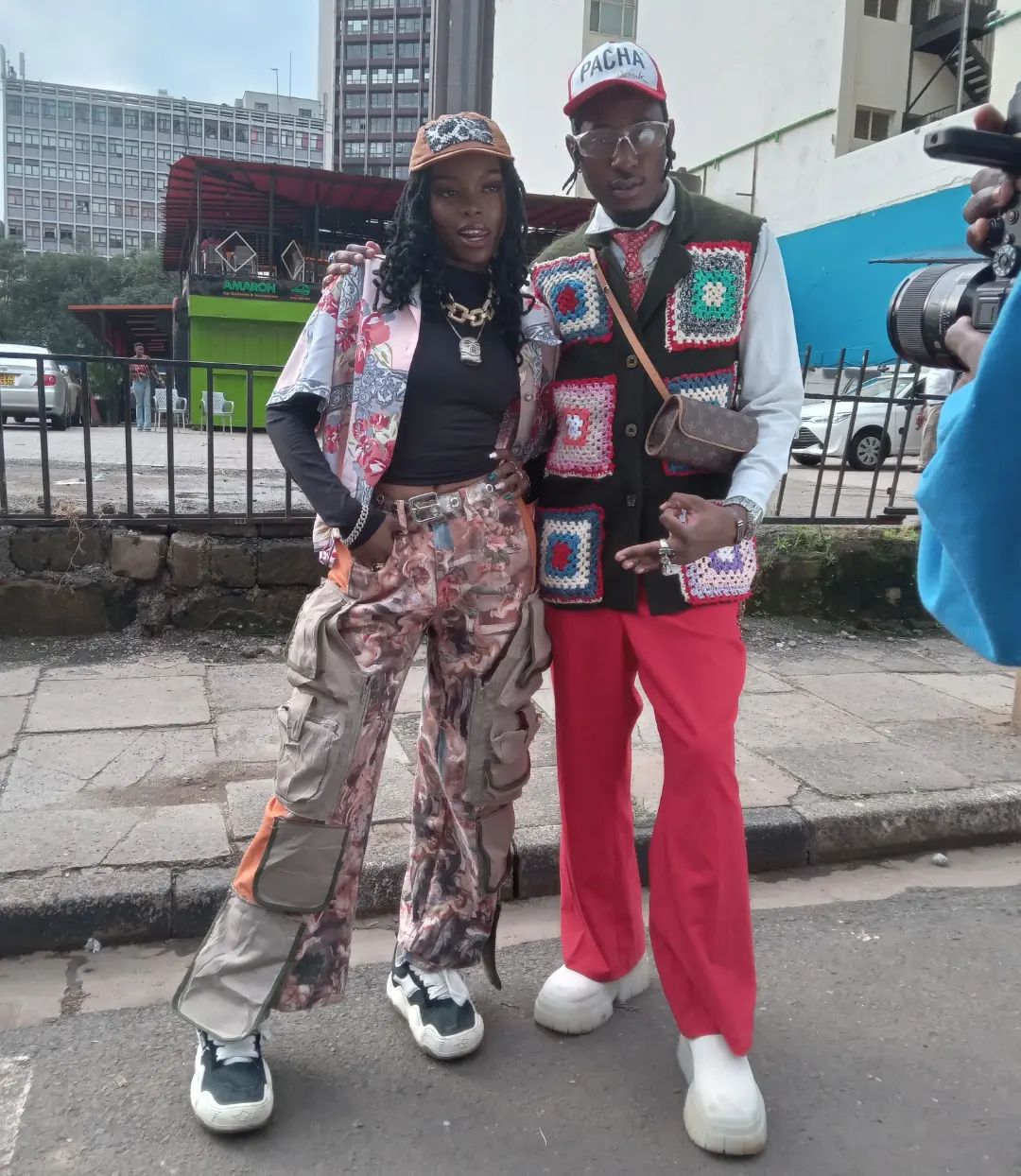 [PHOTO: Collection made by the Kenyan raw]
[PHOTO: Collection made by the Kenyan raw]
But it's not just the combination of styles that makes Kenyan raw stand out. It's Azedy's commitment to sustainability and upcycling that truly sets his brand apart in the Kenyan fashion landscape.
In an era where fast fashion dominates and environmental concerns are at an all-time high, Kenyan raw is taking a stand. Azedy's understanding of sustainable fashion goes beyond mere buzzwords; it's a core principle that guides every aspect of his design process.
"I go to many places to collect waste fabrics from factories, from tailors, and from individuals and put them together to create outfits," Azedy reveals. "For example, someone throws away old bed sheets, old jackets, or blankets. I take them and go wash them properly and I use them in my collections."
This approach to fashion design is not just environmentally conscious; it's a creative challenge that Azedy embraces wholeheartedly. Each piece in a Kenyan raw collections tells a story of transformation, from discarded waste to wearable art.
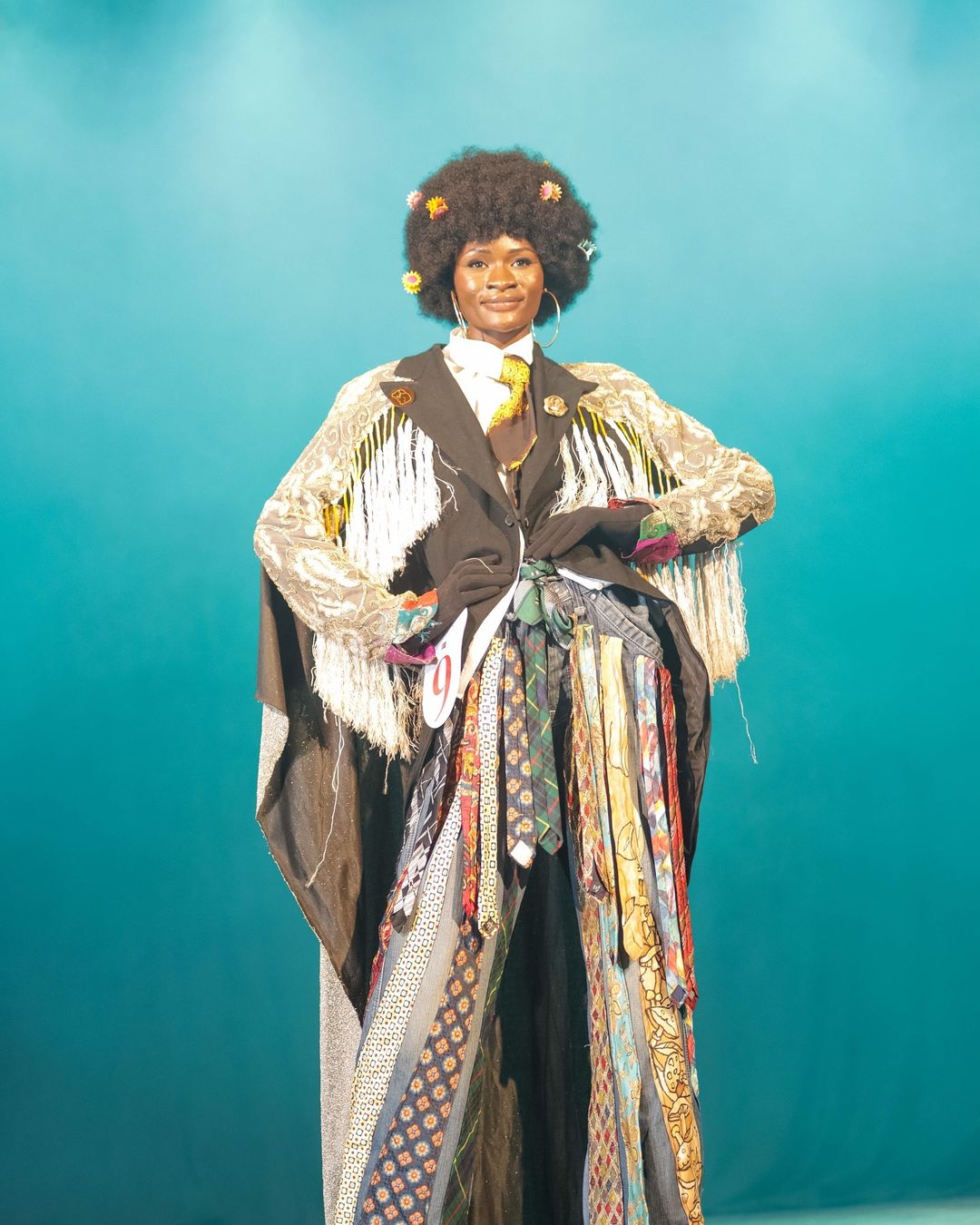 [PHOTO: Collection made by the Kenyan raw]
[PHOTO: Collection made by the Kenyan raw]
However, blazing a new trail in fashion doesn't come without its challenges. Azedy faces several obstacles in his quest to revolutionize Kenyan fashion through sustainable practices.
One of the primary challenges is the lack of understanding from potential customers. "In our community, people are not familiar with this kind of collection," Azedy explains. "Some people tell me that I give myself a lot of work for no reason."
This misunderstanding extends to the pricing of his pieces as well. "As I have mentioned, it takes a lot of time to create this outfit," he continues. "When I go to sell, people think my prices are higher because they don't understand how much it took to create one piece. These are some of the challenges I am facing."
Another significant hurdle for Kenyan raw is the limited availability of certain materials in the Kenyan market. This scarcity can sometimes hinder Azedy's creative process and production capabilities. However, he views these challenges not as insurmountable obstacles but as opportunities for further innovation and creativity.
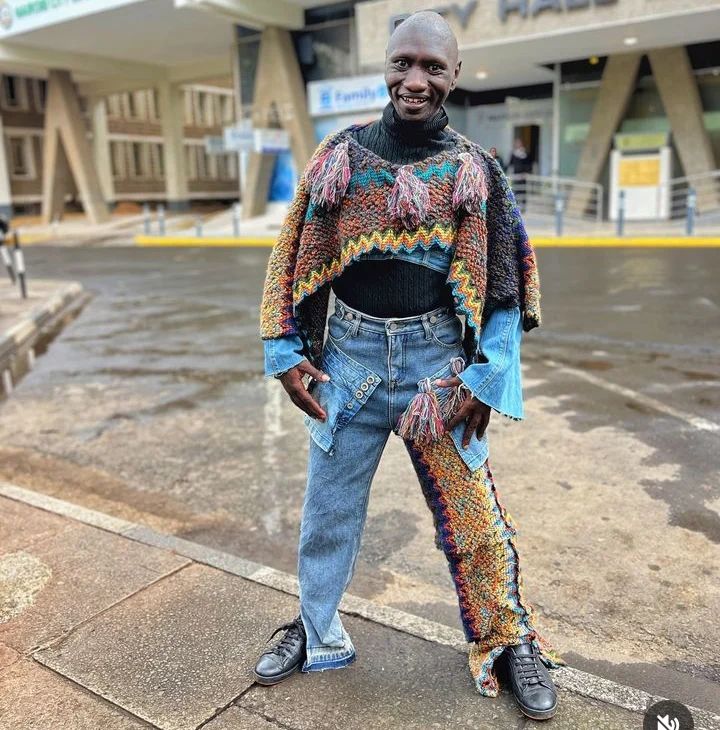 [PHOTO: Collection made by the Kenyan raw]
[PHOTO: Collection made by the Kenyan raw]
Despite these challenges, Azedy remains committed to his vision of sustainable fashion. He sees Kenyan raw as part of a global movement towards more environmentally conscious design and production practices.
"I do make money, yes, but I also do sustainable fashion where we reduce the waste fabrics that could be thrown in our farms," Azedy states passionately. "Upcycling is an act of sustainability in fashion. I send a message to other African fashion designers to think of our planet and save our planet through fashion and creativity."
This global perspective is crucial in understanding the importance of Azedy's work. As the fashion industry worldwide grapples with its environmental impact, designers like Azedy are leading the charge in finding innovative solutions that don't compromise on style or quality.
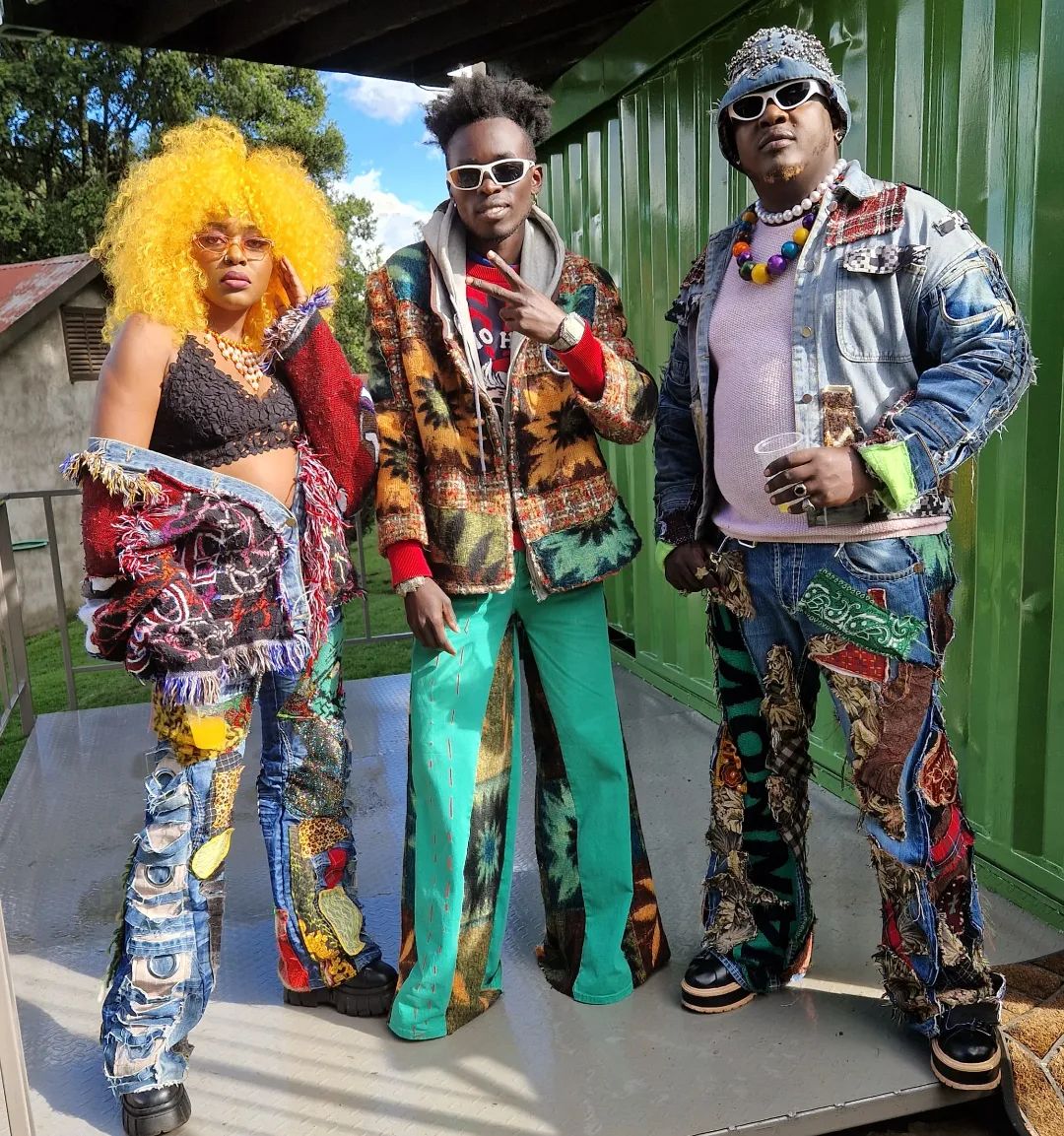 [PHOTO: Collection made by the Kenyan raw]
[PHOTO: Collection made by the Kenyan raw]
As Azedy was preparing to showcase his latest collection at AFAA2024, he said that the future looks bright for Kenyan raw, and the brand's unique approach to fashion design, coupled with its commitment to sustainability, positions it at the forefront of a new wave of African fashion.
The challenges Azedy faces from customer education to material sourcing are likely to diminish as awareness of sustainable fashion practices grows. As more consumers become conscious of the environmental impact of their clothing choices, brands like Kenyan raw are poised to capture a growing market of environmentally conscious fashion enthusiasts.
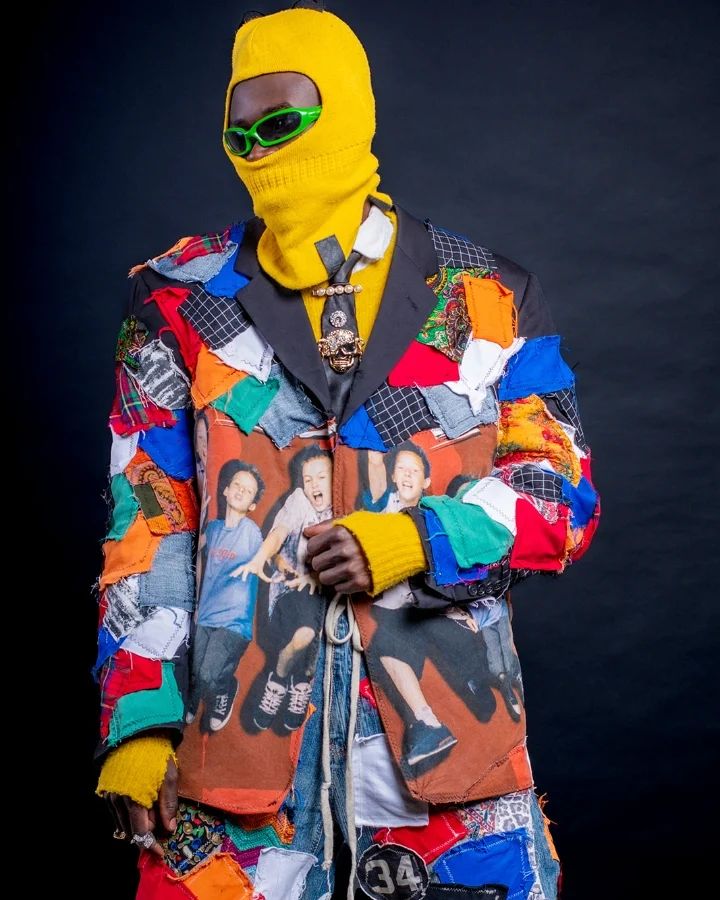 [PHOTO: Collection made by the Kenyan raw]
[PHOTO: Collection made by the Kenyan raw]
Moreover, Azedy's call to action for other African designers to embrace sustainable practices could spark a movement within the continent's fashion industry. As more designers adopt similar approaches, the availability of upcycled materials and the acceptance of sustainable fashion could increase, creating a more favorable environment for brands like Kenyan raw to thrive.
Kenyan raw's influence extends beyond its immediate customer base. By challenging conventional design practices and prioritizing sustainability, Azedy is helping to reshape the Kenyan fashion landscape.
His work serves as an inspiration to up-and-coming designers, showing that it's possible to create unique, high-quality fashion while also being environmentally responsible. This could lead to a new generation of Kenyan designers who view sustainability not as an optional add-on but as a fundamental aspect of their creative process.
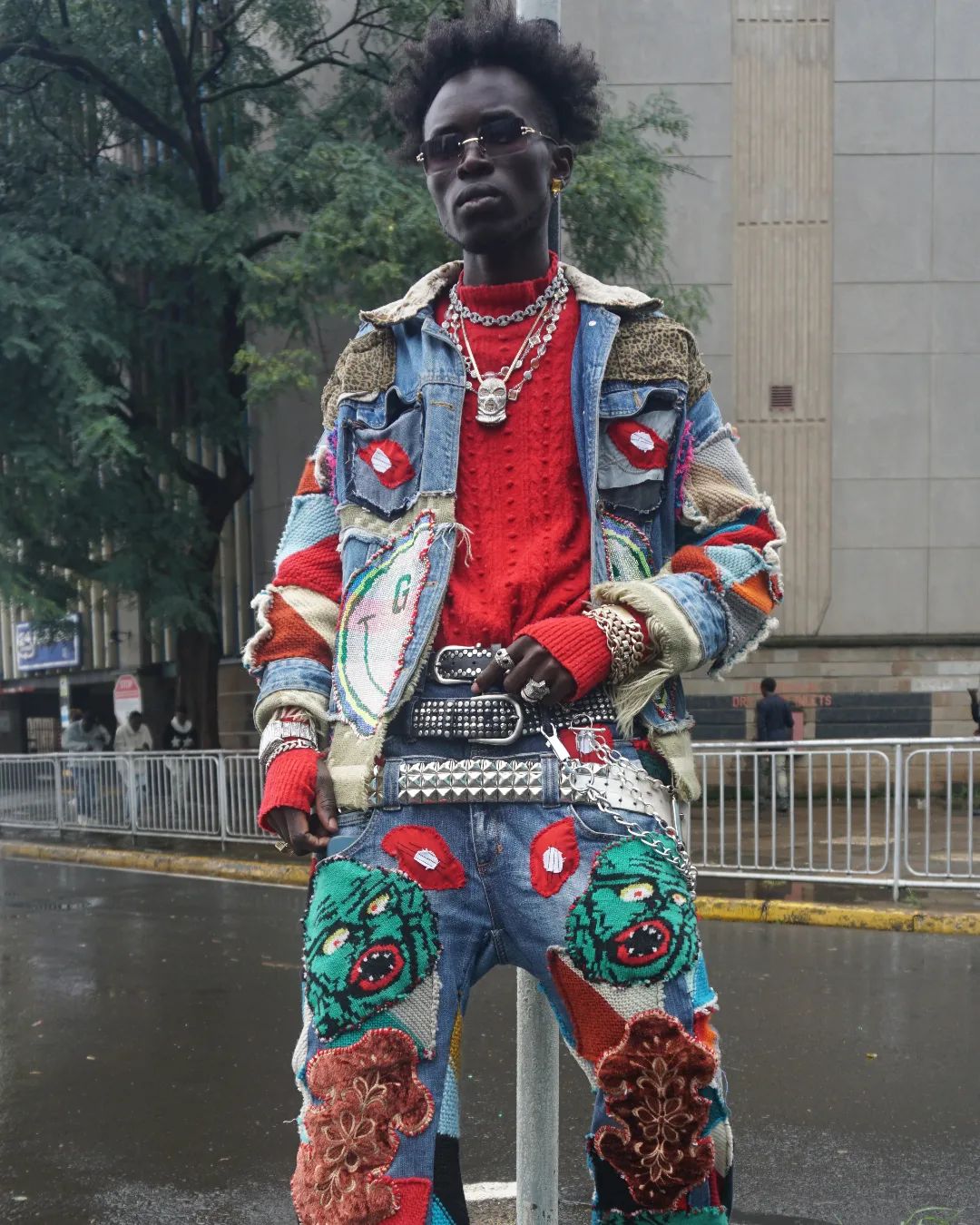 [PHOTO: Collection made by the Kenyan raw]
[PHOTO: Collection made by the Kenyan raw]
Through his innovative designs and commitment to sustainability, Azedy is not just creating clothing; he's crafting a new narrative for African fashion. One where creativity and environmental responsibility go hand in hand, where waste becomes wearable art, and where the boundaries between street style and high fashion blur into something entirely new.
In a world grappling with environmental challenges, Morgan Azedy and Kenyan raw offer a glimpse of hope. They show us that with creativity, determination, and a commitment to sustainability, it's possible to create fashion that's not only beautiful but also kind to our planet.
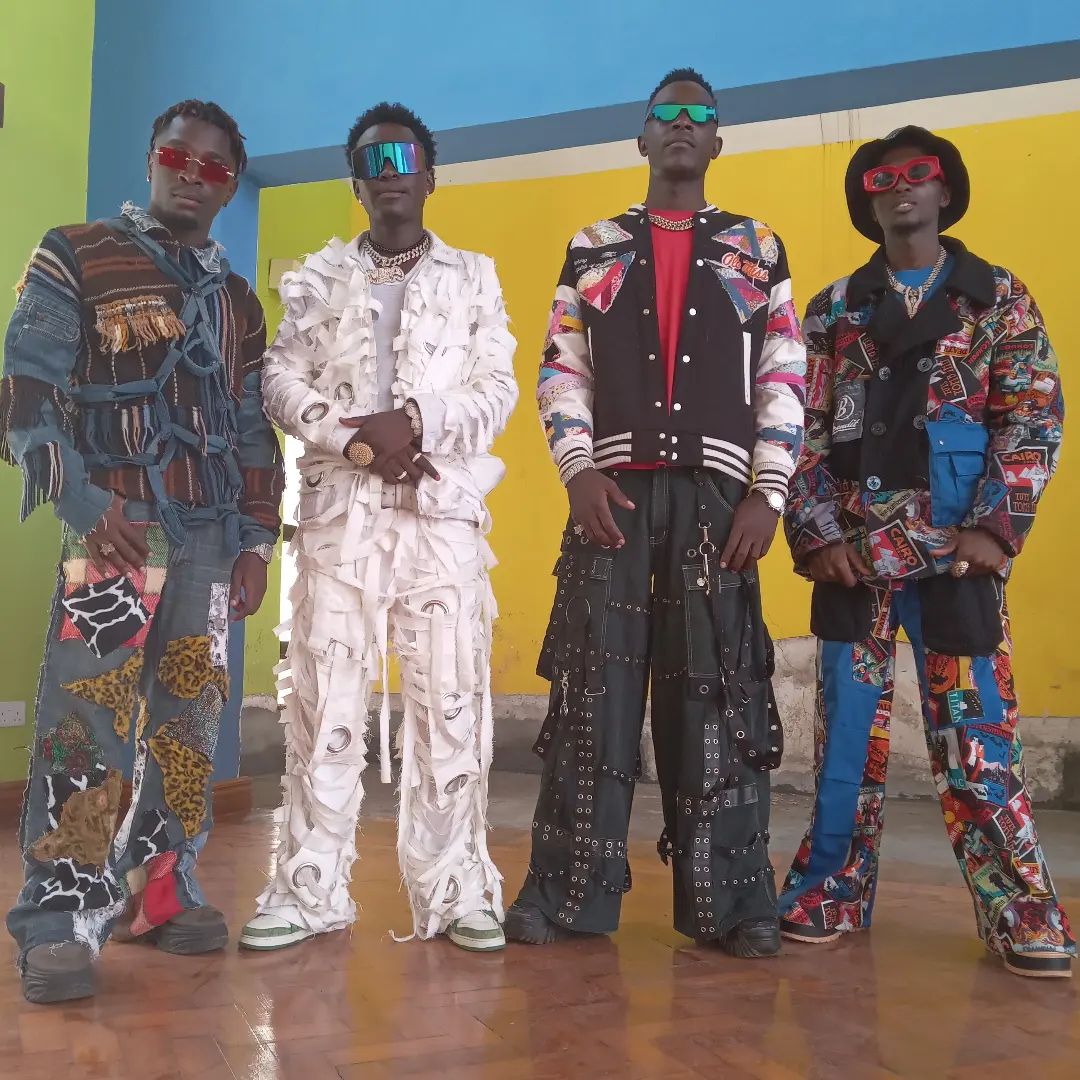 [PHOTO: Collection made by the Kenyan raw]
[PHOTO: Collection made by the Kenyan raw]
Latest from RCFS
- What Fashion Entrepreneurs Will Benefit from the Kuza Africa and RP-IPRC Kigali Partnership?
- What Fashion Entrepreneurs Will Benefit from the Kuza Africa and RP-IPRC Kigali Partnership?
- Who are the 10 Confirmed Fashion Designers at the 17th Edition of Swahili Fashion Week & Awards 2024?
- Who are the 10 Confirmed Fashion Designers at the 17th Edition of Swahili Fashion Week & Awards 2024?
- 9 Rwanda's Female Models Continue to Shine on International Fashion Stage 2024: Here's Why



